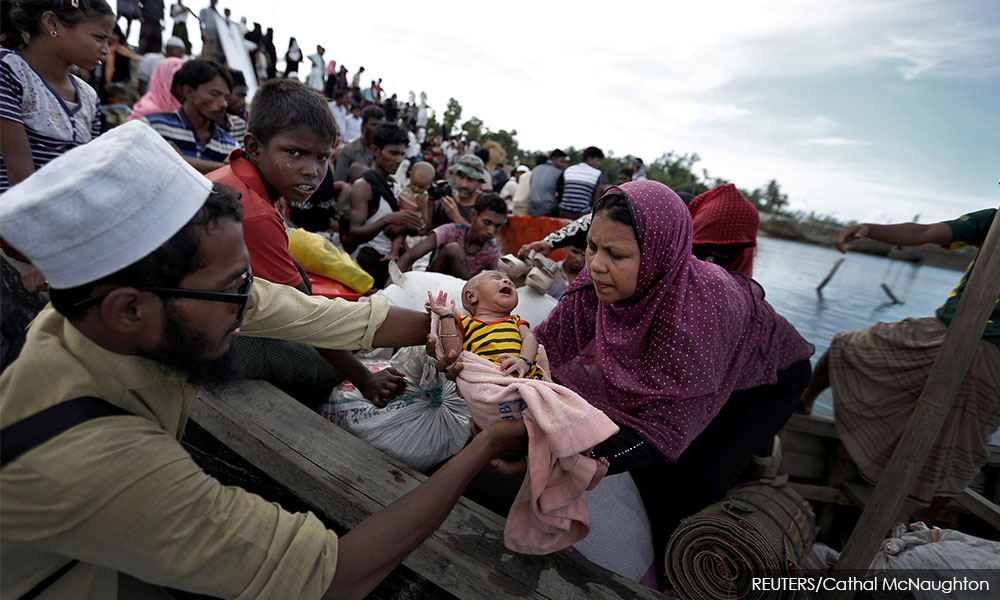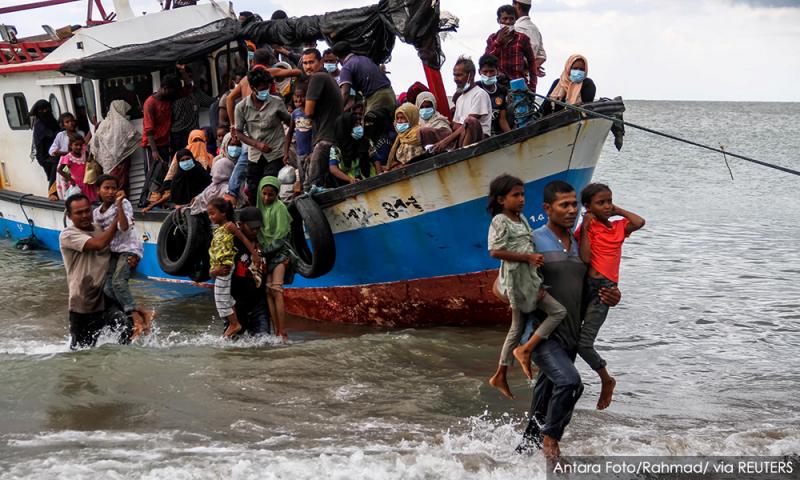Rohingya migrants in limbo
Rohingyas are hopeful of returning to their homeland in Myanmar, but for many, the hope may never become a reality.
Zahid (not his real name) was born in Myanmar in 1970.
He fled his home with seven of his children and just the clothes on their back in 2017 after armed groups began systematically killing people in nearby villages.
Five years on, Myanmar’s Ministry of Foreign Affairs has said it’s readying for the return of “displaced persons from Rakhine state”.
Zahid, a Rohingya, is unlikely to return.
He’s just one of several refugees living in Bangladeshi camps your correspondent interviewed between 2019 and 2021.
Zahid’s family are one of more than 190,000 households considered refugees by the United Nations High Commissioner for Refugees, and he is one of the nearly one million people who have migrated to Bangladesh’s greater Cox’s Bazar area.
It is among the world’s most densely populated refugee camps.
Even before the violence began, Zahid was made stateless in his own country.
Rohingya were excluded from a list drawn up in 1982 of 135 ethnic groups granted citizenship in Myanmar.
They lost their rights of ownership to their properties and any legal claim to their homes.
Rohingya were dubbed “resident foreigners” or “Bengalis”, and with no legal lineage to national races, became alien to their lands.
Zahid recalls the death of his father due to a lack of hospital treatment 21 years ago.
His family tried to get the permission required from the Burmese army for access to a hospital. They were refused.

No higher education
There are many similar stories of Rohingyas being denied access to urgently needed medical care.
Zahid’s siblings and children never had a chance to study beyond Grade 10. No official permission was given for higher education.
And those who could study up to Grade 10 still would not be given a job.
Religious education was barred and Rohingyas could not go to a mosque from 6pm to 6am.
Zahid’s Rohingya neighbours were often blamed for theft, robbery or murder.
He saw an innocent man caught and beaten after the man was falsely accused of a robbery Zahid had seen someone else do.
Now a sub-block leader in Camp-13 in Ukhiya, Cox’s Bazar, Zahid lives with his family in a house made of canvas and bamboo and survives on various relief items including rice and pulses.
There is a school for the children in the camp, and mosques for residents to pray in.
Zahid and his family can get proper medical treatment in the camp hospital. But the hospitals do not remain open at night.
Asked if he wished to return to his ancestral home in Myanmar, Zahid said yes, he wants to go back to Maungdaw.
But his memory of multiple accounts of violence in Myanmar remains nerve-racking for him and his family members.
He wants to believe the Burmese government will give them citizenship and take them back with open arms.
But he has a profound lack of confidence in his government’s declared intention to resolve things by bringing Rohingya back to Myanmar.
Progress in state-level negotiations has not been visible on the Burmese side.
Myanmar has failed to protect its own citizens against the perpetrators of violence – regimes, security institutions and other persecutors.
Myanmar needs to transform its behaviour as a state and reform its political-military structure to accommodate minorities and ensure they are treated equally.
Without further political and structural reforms, the potential for violence against Rohingyas remains, worsening the uncertainty for Zahid and others like him who still hope to return to their homeland.
NILOY RANJAN BISWAS, PhD, teaches International Relations at the University of Dhaka. He has written extensively on peacebuilding, peacekeeping, preventing violent extremism, and refugees and forced migration issues. This life story of a camp-based Rohingya was collected as a part of a research project Rohingya Journeys of Violence and Resilience in Bangladesh and its Neighbours, supported under the UK Government’s Global Challenges Research Fund (GCRF).
Biswas declared no conflicts of interest in relation to this article.
This article is part of a special report on the “Changing face of migration”, produced in collaboration with the Calcutta Research Group.
Originally published under Creative Commons by 360info™.
Muda leader calls for Malaysia to recognise refugee status
Refugees braving the odds and daring to dream
Ex-journalist turned activist couldn't look the other way as refugees suffered
World Refugee Day: Ex-beauty queen fights for children's education rights
RM12.50 / month
- Unlimited access to award-winning journalism
- Comment and share your opinions on all our articles
- Gift interesting stories to your friends
- Tax deductable
